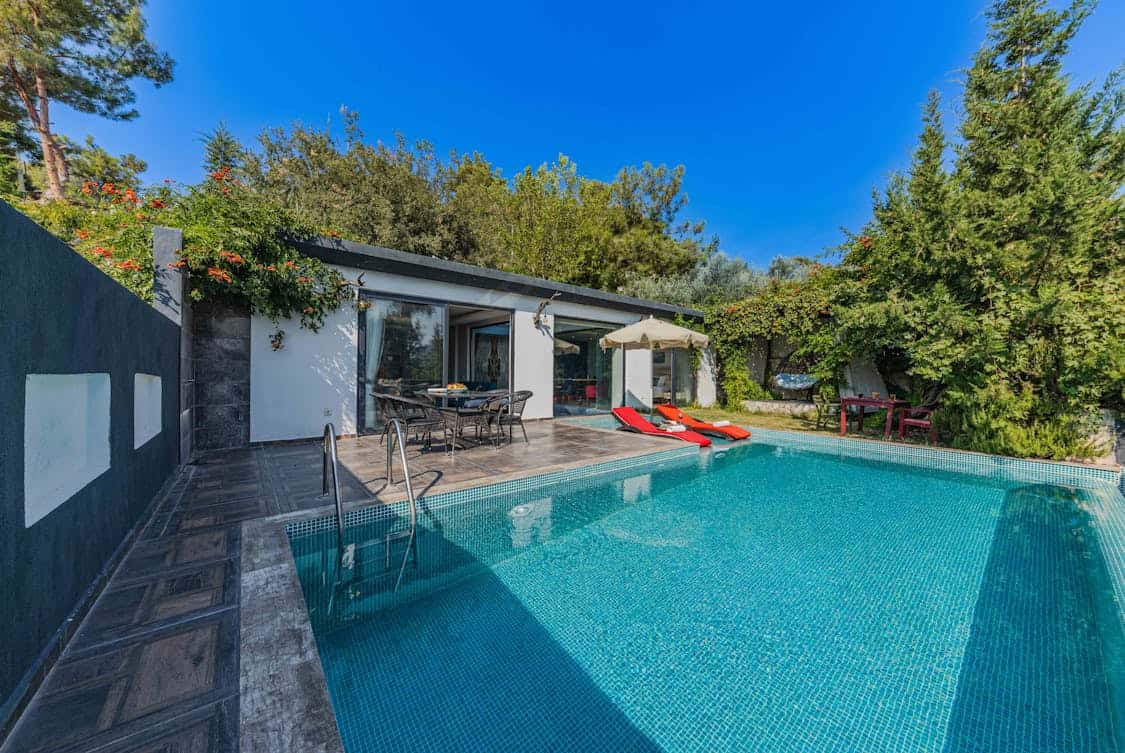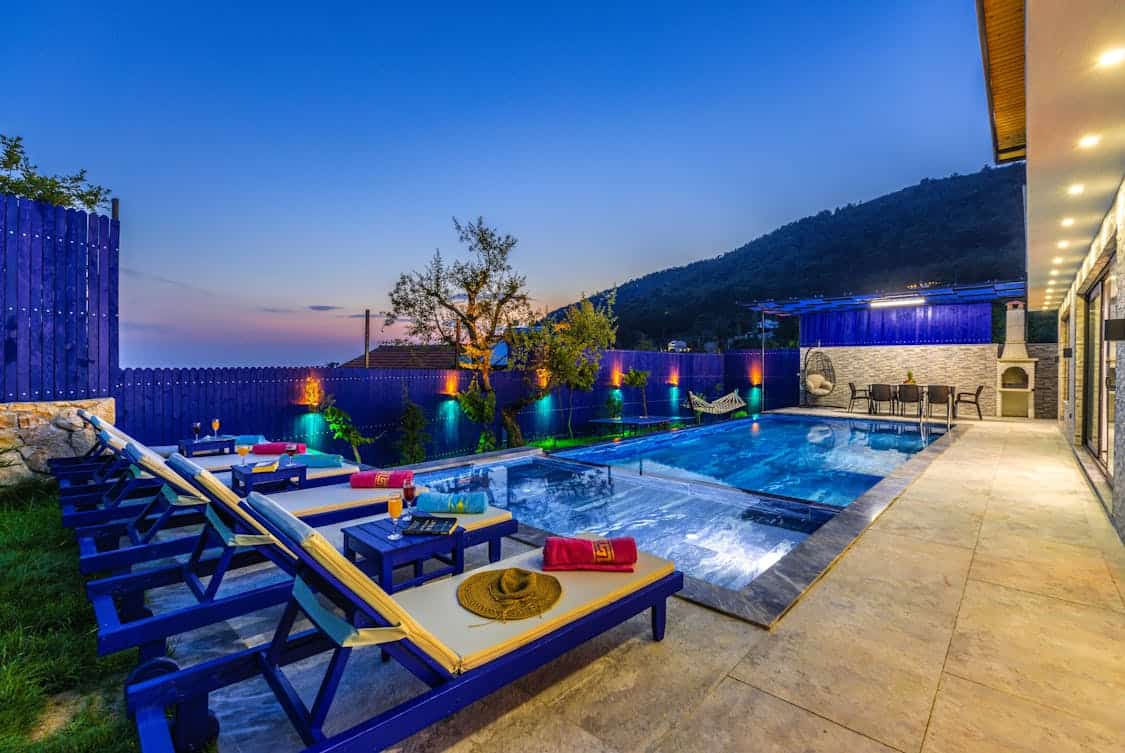5 Key Factors to Consider Before Building a Swimming Pool

Building a swimming pool can be an exhilarating project that adds value and enjoyment to any home. However, before you take the plunge, it’s wise to carefully think through several important factors.
From location to budget, understanding the nuances involved can lead to a pool that meets your needs and desires.
1. Location and Space
Choosing the right location for your pool is foundational. Ideally, it should be a spot that receives ample sunlight throughout the day.
Sunlight not only keeps the water warm but also enhances the overall swimming experience. In addition, consider how the position of the pool complements your house’s layout, ensuring it feels like a natural extension of your home.
Space availability is another significant aspect. Ensure the area around the pool is spacious enough for lounging chairs, a barbecue space, or even a garden. You want to create an environment where friends and family can easily gather without feeling cramped.
Traffic flow is important here, as well—think about how people will move around your yard and access the pool. If you’re unsure how to maximize your yard’s potential, Splash in Style Pool Builders can design layouts that make the most of your space.
Furthermore, be mindful of local regulations regarding setbacks from property lines and structures. Many municipalities have specific rules that dictate how far a pool must be from boundaries and how close it can be built to existing buildings. Ignoring these guidelines could lead to costly adjustments down the line.
Finally, consider any landscaping elements that might affect your pool location. Trees provide shade, which can be desirable, but their leaves and debris could create maintenance headaches. Evaluate the natural surroundings and plan accordingly to strike a balance between beauty and practicality.
2. Budget and Costs
Setting a budget is one of the first steps in your planning process. Swimming pool costs can vary widely based on size, materials, and features.
A basic pool may be more affordable, but adding bells and whistles—like a hot tub, waterfall, or sophisticated lighting—can significantly increase expenses.
In addition to the initial construction costs, don’t overlook ongoing maintenance expenses. Regular cleaning, chemical treatments, and utility bills for heating and circulation can add up.
Budgeting for these ongoing costs ensures that your investment continues to provide enjoyment without financial strain.
Moreover, it’s a good idea to set aside a contingency fund. Sometimes, unforeseen issues arise during construction, whether they be related to ground conditions or unexpected regulatory hurdles.
Having extra funds available can help mitigate stress and keep your project on track.
Lastly, consider financing options if necessary. Many homeowners take out loans or utilize savings for such projects. Weigh the pros and cons of each method, as financial decisions will impact your broader financial health.
3. Design and Features

The design of your swimming pool reflects your personal style and how you plan to use the space. Choosing between an inground or above-ground pool is a primary decision, each with its own set of advantages and disadvantages.
Inground pools can be customized more extensively, while above-ground pools generally require less investment.
In terms of aesthetic features, think about water slides, diving boards, or perhaps a spa area. These additions can enhance the enjoyment of the pool but also influence the overall cost and design.
Take the time to sketch out what you envision; this can help guide discussions with contractors.
Also, consider how the pool will fit into your existing outdoor space and landscaping. Choosing complementary materials can create a seamless look. For instance, if your house has a modern design, you might lean toward sleek tiles and clean lines.
Finally, incorporate safety features into your design. From pool covers to fencing, various options can help protect children and pets. Planning for safety measures from the start can give you peace of mind as you enjoy your new oasis.
4. Maintenance and Upkeep
Owning a pool comes with a unique set of responsibilities. Regular maintenance is a must to keep your pool clean, safe, and functional.
You’ll need to think about how much time and effort you’re willing to dedicate to upkeep. Routine tasks include monitoring chemical levels, skimming debris, and cleaning filters.
Consider investing in automated cleaning systems or hiring a service to ease the burden. These options can save time and ensure that your pool remains in top condition. While these services come with a price tag, the convenience can be well worth it.
Also, seasonal considerations play a role in maintenance. For those living in colder climates, winterizing your pool is essential to prevent damage.
This process usually involves covering the pool, draining water to a certain level, and adding specific chemicals to protect it during the off-season.
Lastly, familiarize yourself with local regulations regarding pool maintenance. Some municipalities have specific guidelines about water quality and safety standards. Knowing these rules can help you avoid potential fines and maintain a safe environment for all users.
5. Local Regulations and Permits
Before you start digging, it’s essential to understand the local regulations governing pool construction. Most areas require permits for new pools, and the process can involve several steps, including site plans and inspections.
Ignoring these requirements can lead to significant penalties and even the removal of your pool.
In addition to standard permits, check if your area has specific zoning laws. These laws can affect where you can place your pool or how large it can be. Understanding these details upfront can save you headaches later.
It’s also smart to consult with professionals, such as landscape architects or pool contractors, who are familiar with local laws. They can help navigate the complexities and ensure compliance with all necessary regulations.
Hiring someone well-versed in local requirements can prove invaluable, providing peace of mind as you move forward.
Lastly, don’t overlook insurance implications. Installing a pool may affect your homeowner’s insurance policy, so it’s wise to discuss any changes with your insurance agent. They can guide you on adjusting your coverage to account for the new addition, ensuring you remain adequately protected.
Building a swimming pool is a significant undertaking, involving careful planning and consideration of multiple factors. From location and budget to design and local regulations, each element plays a pivotal role in the overall success of the project.
By weighing these factors thoughtfully, you can create a pool that serves as a beautiful, functional centerpiece for your home.